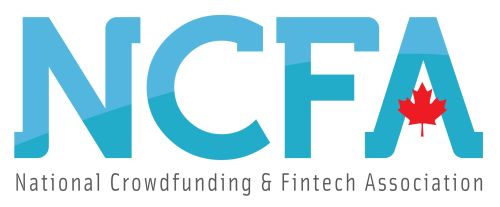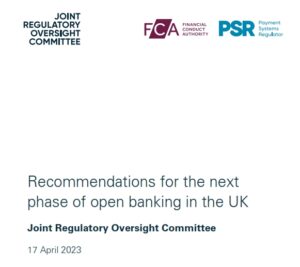Consultation | Feb 1, 2024
Canada's Department of Finance Seeks Input on Modernizing SR&ED Program and Introducing Patent Box Regime
The Scientific Research and Experimental Development (SR&ED) program in Canada is undergoing significant changes and consultations in 2024, with a focus on modernizing the program to better support research and development activities in Canada. The program has been a cornerstone of federal funding for innovation in the country, providing support to firms engaged in R&D activities and in the development of valuable intellectual property.
About SR&ED
The SR&ED program is a key part of Canada's innovation strategy, offering tax incentives to a wide range of businesses for their R&D activities. In 2021, it provided $3.9 billion to over 22,000 Canadian businesses.
See: IP Box: Would a special IP income tax rate boost Canada’s flagging innovation?
- A notable aspect of the SR&ED program is its comprehensive coverage of various eligible expenditures. These include labor costs, contractor fees, materials, and overhead expenses that directly relate to R&D activities aimed at resolving technological uncertainties or challenges.
- The program offers different levels of funding for these expenses, such as up to 69% for eligible labour costs and up to 45% for materials consumed in R&D activities.
- In terms of the application process, the reporting deadline for the SR&ED program is set at 18 months from the end of the tax year in which the qualifying expenses were incurred.
- Additionally, there are also provincial and territorial variants, offering additional support with their own criteria and funding amounts. For instance, Canadian-Controlled Private Corporations (CCPC) may earn a refundable Investment Tax Credit (ITC) at the enhanced rate of 35% on qualified SR&ED expenditures up to $3 million.
Consultation
The review process for SR&ED involves gathering insights on how the program can better align with Canada's broader R&D goals. This includes exploring ways to enhance the retention of intellectual property within Canada, potentially through a patent box regime.
See: CIC Launch Delayed Impacting Innovation Funding Landscape
Stakeholders from various sectors, including technology and research, are contributing perspectives, emphasizing the need for reforms to further incentivize innovation while ensuring the program's benefits extend across the Canadian economy.
1. Patent Box Regime
The Canadian government is consulting on the creation of a patent box regime to enhance research and development (R&D) and intellectual property (IP) retention in Canada. This consultation focuses on how such a regime might best support innovation, the specific design features of a patent box, and its integration with the broader tax system. The goal is to create a policy that incentivizes R&D and the commercialization of resulting IP in Canada. For a detailed understanding of these consultation questions, you can visit the page here.
2. Cost Effective Ways to Modernize the SR&ED Program
The Canadian government is soliciting feedback on how to modernize and improve the program, focusing on its effectiveness in supporting R&D investments, refining eligibility criteria, enhancing the complementarity with other R&D support programs, targeting overall assistance more effectively, ensuring IP retention within Canada, simplifying access for entrepreneurs, and determining the best use of existing support. Stakeholders are invited to contribute their insights. For more information, you can visit the consultation page here.
See: Canada’s Ranks 15th on WIPO 2023 Innovation Index
The government's ongoing review and consultation process for SR&ED is expected to further refine and enhance the program, ensuring that it effectively supports Canada's R&D landscape and positions the country as a leader in innovation.
Reaction
The Council of Canadian Innovators (CCI) issued a statement regarding the Department of Finance's announcement about reviewing the Scientific Research and Experimental Development (SR&ED) Tax Credit and exploring a patent box regime.
Nicholas Schiavo, CCI's Director of Federal Affairs, emphasized the critical role of the SR&ED tax credit in driving innovation and economic activity in Canada. CCI advocates for reforms to prioritize Canadian firms and expand eligibility criteria to cover intellectual property costs related to R&D. The potential patent box policy, aimed at boosting IP generation and commercialization in Canada, is also seen as a positive development. CCI remains optimistic about the consultation process and its implications for Canada's innovation economy.
Share Your Feedback By April 15, 2024
All Canadians and stakeholders are invited to share feedback by emailing SRED-PB-RSDE-RPB@fin.gc.ca by April 15, 2024, with either “SR&ED Review” or “Patent Box” as the subject line.

 The National Crowdfunding & Fintech Association (NCFA Canada) is a financial innovation ecosystem that provides education, market intelligence, industry stewardship, networking and funding opportunities and services to thousands of community members and works closely with industry, government, partners and affiliates to create a vibrant and innovative fintech and funding industry in Canada. Decentralized and distributed, NCFA is engaged with global stakeholders and helps incubate projects and investment in fintech, alternative finance, crowdfunding, peer-to-peer finance, payments, digital assets and tokens, artificial intelligence, blockchain, cryptocurrency, regtech, and insurtech sectors. Join Canada's Fintech & Funding Community today FREE! Or become a contributing member and get perks. For more information, please visit: www.ncfacanada.org
The National Crowdfunding & Fintech Association (NCFA Canada) is a financial innovation ecosystem that provides education, market intelligence, industry stewardship, networking and funding opportunities and services to thousands of community members and works closely with industry, government, partners and affiliates to create a vibrant and innovative fintech and funding industry in Canada. Decentralized and distributed, NCFA is engaged with global stakeholders and helps incubate projects and investment in fintech, alternative finance, crowdfunding, peer-to-peer finance, payments, digital assets and tokens, artificial intelligence, blockchain, cryptocurrency, regtech, and insurtech sectors. Join Canada's Fintech & Funding Community today FREE! Or become a contributing member and get perks. For more information, please visit: www.ncfacanada.org Related Posts
- SEO Powered Content & PR Distribution. Get Amplified Today.
- PlatoData.Network Vertical Generative Ai. Empower Yourself. Access Here.
- PlatoAiStream. Web3 Intelligence. Knowledge Amplified. Access Here.
- PlatoESG. Carbon, CleanTech, Energy, Environment, Solar, Waste Management. Access Here.
- PlatoHealth. Biotech and Clinical Trials Intelligence. Access Here.
- Source: https://ncfacanada.org/dof-consultation-help-modernize-canadas-sred-program/
- :has
- :is
- $3
- $UP
- 000
- 1
- 15%
- 150
- 2018
- 2021
- 2023
- 2024
- 203
- 22
- 300
- 35%
- 62
- 9
- a
- About
- access
- across
- activities
- activity
- Additional
- advocates
- Affairs
- affiliates
- aimed
- align
- also
- alternative
- alternative finance
- amounts
- and
- Announcement
- Application
- April
- ARE
- artificial
- artificial intelligence
- AS
- aspect
- Assets
- Assistance
- At
- become
- been
- benefits
- BEST
- Better
- Billion
- blockchain
- boost
- boosting
- Box
- broader
- businesses
- by
- CA
- cache
- CAN
- Canada
- Canadian
- Canadians
- challenges
- Changes
- closely
- commercialization
- community
- comprehensive
- consultation
- consultations
- consulting
- consumed
- Contractor
- contribute
- contributing
- cornerstone
- Corporations
- Cost
- Costs
- Council
- country
- cover
- coverage
- create
- credit
- criteria
- critical
- Crowdfunding
- cryptocurrency
- deadline
- decentralized
- Delayed
- Department
- Design
- detailed
- determining
- Development
- different
- digital
- Digital Assets
- directly
- Director
- distributed
- DOF
- driving
- earn
- Economic
- economy
- ecosystem
- ed
- Education
- Effective
- effectively
- effectiveness
- either
- eligibility
- eligible
- emphasized
- emphasizing
- end
- engaged
- enhance
- enhanced
- enhancing
- ensuring
- entrepreneurs
- Ether (ETH)
- existing
- Expand
- expected
- expenses
- experimental
- Exploring
- extend
- Features
- Feb
- Federal
- feedback
- Fees
- finance
- financial
- financial innovation
- fintech
- firms
- Focus
- focuses
- focusing
- For
- from
- funding
- funding opportunities
- further
- gathering
- generation
- get
- Global
- goal
- Goals
- Government
- help
- helps
- High
- How
- How To
- HTML
- http
- HTTPS
- impacting
- implications
- improve
- in
- Incentives
- incentivize
- incentivizes
- include
- includes
- Including
- Income
- income tax
- incurred
- index
- industry
- information
- Innovation
- Innovation Strategy
- innovative
- innovators
- input
- insights
- instance
- Insurtech
- integration
- intellectual
- intellectual property
- Intelligence
- introducing
- investment
- Investments
- invited
- involves
- IP
- IT
- ITS
- Jan
- jpg
- Key
- labor
- Labour
- landscape
- launch
- leader
- levels
- Line
- Market
- materials
- max-width
- May..
- member
- Members
- might
- million
- modernize
- modernizing
- months
- more
- Need
- networking
- notable
- of
- offering
- Offers
- on
- ongoing
- opportunities
- Optimistic
- or
- Other
- over
- overall
- overhead
- own
- page
- part
- partners
- patent
- payments
- peer to peer
- perks
- perspectives
- plato
- Plato Data Intelligence
- PlatoData
- please
- policy
- positions
- potentially
- private
- process
- Program
- Programs
- projects
- property
- provided
- provides
- providing
- Provincial
- qualified
- qualifying
- Questions
- R&D
- range
- ranks
- Rate
- refine
- refining
- regarding
- regime
- Regtech
- related
- remains
- Reporting
- research
- research and development
- resolving
- resulting
- retention
- review
- reviewing
- Role
- s
- scientific
- Scientific Research
- Sectors
- Seeks
- seen
- Services
- set
- Share
- significant
- simplifying
- special
- specific
- stakeholders
- Stewardship
- Strategy
- subject
- such
- support
- Supporting
- Supports
- system
- targeting
- tax
- tax credit
- technological
- Technology
- terms
- that
- The
- their
- There.
- These
- this
- thousands
- Through
- to
- today
- Tokens
- uncertainties
- undergoing
- understanding
- use
- Valuable
- variants
- various
- vibrant
- Visit
- ways
- were
- which
- while
- wide
- Wide range
- with
- within
- works
- would
- year
- you
- Your
- zephyrnet














